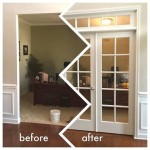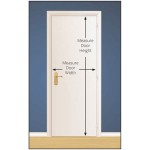Colleges With Interior Design Majors In Virginia
Virginia offers a variety of higher education institutions that provide comprehensive interior design programs. These programs cater to students seeking to develop the skills and knowledge necessary to excel in the dynamic field of interior design. Options range from undergraduate degrees to specialized certifications, offering diverse pathways for aspiring professionals. The following article examines several prominent colleges and universities in Virginia with reputable interior design majors, highlighting their curriculum, specializations, and available resources.
Choosing the right interior design program requires careful consideration of various factors, including accreditation, faculty expertise, program focus, and available facilities. Students should research programs that align with their career aspirations and learning preferences. The location of the institution can also be a factor, with some programs being situated in urban centers with greater access to design resources and internships.
Key Considerations When Choosing an Interior Design Program
Selecting the appropriate interior design program is a vital step toward a successful career. Several fundamental aspects should inform this decision-making process. Accreditation by organizations like the Council for Interior Design Accreditation (CIDA) signals that a program meets rigorous standards of quality and prepares students for professional practice. CIDA-accredited programs often have a strong emphasis on design theory, technical skills, and practical application.
Faculty expertise plays a significant role in the quality of education. Programs led by experienced faculty members with diverse backgrounds in interior design, architecture, and related fields can provide students with valuable insights and mentorship. Faculty involvement in professional organizations and research activities is also indicative of a dynamic and engaging learning environment.
The program's curriculum should comprehensively cover essential topics such as space planning, color theory, materials and finishes, lighting design, sustainable design principles, and building codes. Moreover, the program should integrate technology relevant to the profession, including computer-aided design (CAD) software, building information modeling (BIM), and rendering tools. A strong emphasis on studio work and project-based learning is crucial for developing practical design skills and building a professional portfolio.
Institutions Offering Interior Design Programs in Virginia
Several institutions across Virginia offer focused interior design programs, each with its unique strengths and areas of specialization. These programs cater to a range of interests, from residential design to commercial design, and prepare students for a variety of career paths.
Virginia Tech: Virginia Tech's interior design program, housed within the College of Architecture and Urban Studies, is known for its rigorous curriculum and focus on research. The program emphasizes both design theory and practical application, preparing students for leadership roles in the field. The program focuses on the integration of sustainability principles into the design process and encourages students to explore innovative design solutions. Students have access to state-of-the-art facilities, including design studios, fabrication labs, and digital visualization resources. The program also offers opportunities for internships and study abroad experiences, allowing students to gain valuable international perspectives.
James Madison University: James Madison University's interior architecture program offers a comprehensive education in the principles of design, construction, and technology. The curriculum emphasizes creative problem-solving, critical thinking, and effective communication skills. Students learn to develop sustainable and functional spaces that meet the needs of diverse users. The program also incorporates studio work, lectures, and group projects to foster a collaborative learning environment. The program also offers opportunities for students to participate in community-based design projects, allowing them to apply their skills to real-world challenges. Students gain experience in a wide range of design software and technologies, preparing them for the demands of the professional field.
Radford University: Radford University’s interior design program offers a Bachelor of Fine Arts degree, emphasizing a balance of artistic creativity and technical proficiency. The program focuses on residential and commercial design, with a strong emphasis on sustainable design practices. Students develop skills in space planning, material selection, and construction documentation. The program also incorporates studio work and internships to provide students with hands-on experience. The faculty is comprised of experienced professionals who bring real-world insights into the classroom. The program offers students the opportunity to participate in design competitions and exhibitions to showcase their work and gain recognition.
Hampton University: Hampton University offers a Bachelor of Architecture degree with a strong emphasis on interior architecture. The program focuses on the design of buildings and their interiors, with a particular emphasis on historical preservation and adaptive reuse. The curriculum integrates design theory, technical skills, and professional practice. Students learn to develop sustainable and culturally sensitive design solutions. The program also offers opportunities for internships and community engagement projects. The university’s location near historical sites provides students with unique opportunities to study and learn from the past.
While not offering a specific interior design degree, VCU Arts at Virginia Commonwealth University provides a foundation in design principles through its broader art and design programs. Students interested in interior design can focus their studies on related areas such as furniture design, sculpture, or graphic design, and tailor their coursework to align with their interests. VCU Arts is known for its innovative and interdisciplinary approach to education, encouraging students to explore the boundaries of their creative abilities. Students have access to state-of-the-art facilities, including wood shops, metal shops, and digital fabrication labs. The program also offers opportunities for students to collaborate with other departments within the university, fostering a rich and diverse learning environment.
Curriculum Components of Interior Design Programs
The curricula within interior design programs are structured to provide students with a comprehensive understanding of the field. Core courses typically cover several key areas, including design theory, space planning, materials and finishes, lighting design, and building systems. Design theory provides students with a foundation in the principles of visual communication, color theory, and composition. Space planning focuses on the functional and aesthetic arrangement of spaces to meet the needs of users. Materials and finishes cover the properties, applications, and environmental impacts of various materials used in interior design. Lighting design explores the principles of illumination and its impact on human perception and well-being. Building systems introduce students to the mechanical, electrical, and plumbing systems that support interior spaces.
In addition to core courses, interior design programs often offer specialized electives that allow students to focus on specific areas of interest. These electives may include sustainable design, kitchen and bath design, healthcare design, hospitality design, or retail design. Sustainable design explores the principles of environmentally responsible design and the use of sustainable materials and practices. Kitchen and bath design focuses on the planning and design of functional and aesthetically pleasing kitchens and bathrooms. Healthcare design addresses the unique needs of healthcare environments, including patient safety, infection control, and accessibility. Hospitality design focuses on the design of hotels, restaurants, and other hospitality spaces. Retail design explores the principles of visual merchandising and the creation of engaging retail environments.
Studio courses are an integral part of interior design programs, providing students with hands-on experience in applying design principles to real-world projects. These courses typically involve the development of design concepts, the creation of drawings and renderings, and the presentation of design solutions. Studio projects may range from small-scale residential projects to large-scale commercial projects. Students work individually and in teams to develop their design skills and learn to collaborate with others. Studio courses are often taught by experienced designers who provide students with feedback and guidance throughout the design process.
Technology plays an increasingly important role in interior design, and programs typically incorporate training in computer-aided design (CAD) software, building information modeling (BIM), and rendering tools. CAD software is used to create detailed drawings and plans. BIM is used to create virtual models of buildings that can be used for design, construction, and management. Rendering tools are used to create photorealistic images of design concepts. Students gain experience in using these technologies to communicate their design ideas effectively.
Internships are an essential component of many interior design programs, providing students with the opportunity to gain practical experience in the field. Internships allow students to work alongside experienced designers, learn about the day-to-day operations of a design firm, and build their professional network. Internships can also lead to job opportunities after graduation. Many programs have partnerships with design firms and architectural firms, making it easier for students to find internships. Internships can also provide students with valuable insights into different areas of interior design, helping them to identify their career interests.

Best Interior Design Graduate Programs In Virginia 2024
Schools College Of Architecture Arts And Design Virginia Tech

Schools College Of Architecture Arts And Design Virginia Tech

The Interior Design Major At Virginia Tech

Introduction To Interior Design Piedmont Virginia Community College

Visit Us College Of Architecture Arts And Design Virginia Tech

Appalachian State University Interior Design Bs

Schools College Of Architecture Arts And Design Virginia Tech

Virginia Interior Design Schools And Salary Guide

Interior Design Virginia Tech College Majors 101 Discover Jobs And Offerings
Related Posts








